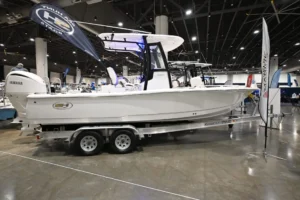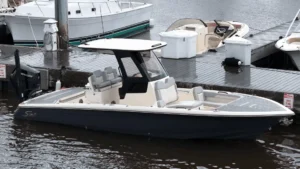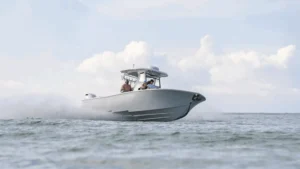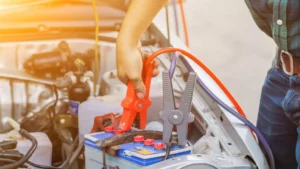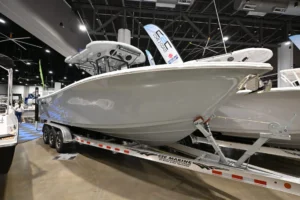Pontoon vs. Tritoon: Which is Right for You?
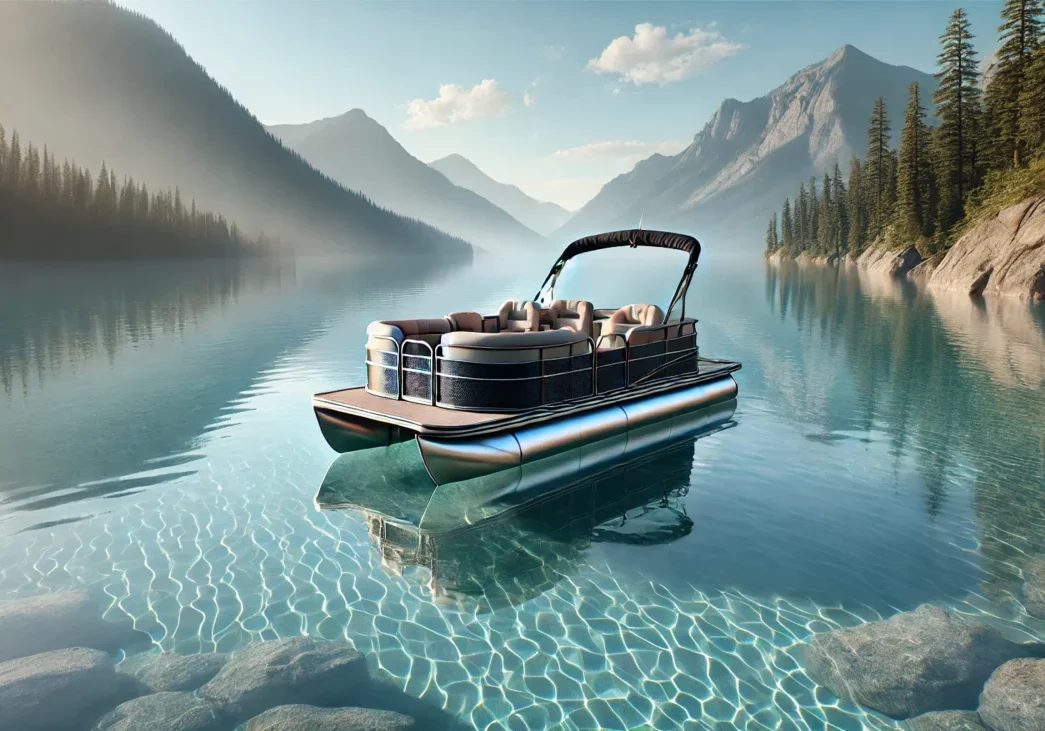
Quick Answer: Pontoon vs. Tritoon
A pontoon boat rides on two large aluminum tubes, giving it plenty of deck space and stability for calm-water cruising. A tritoon adds a third center tube, which improves handling, allows for bigger engines, and makes the boat more capable in choppier conditions. In simple terms: pontoons are ideal for relaxed family outings on lakes and rivers, while tritoons deliver more speed, versatility, and performance when you want to do a little more on the water.
What is a Pontoon?
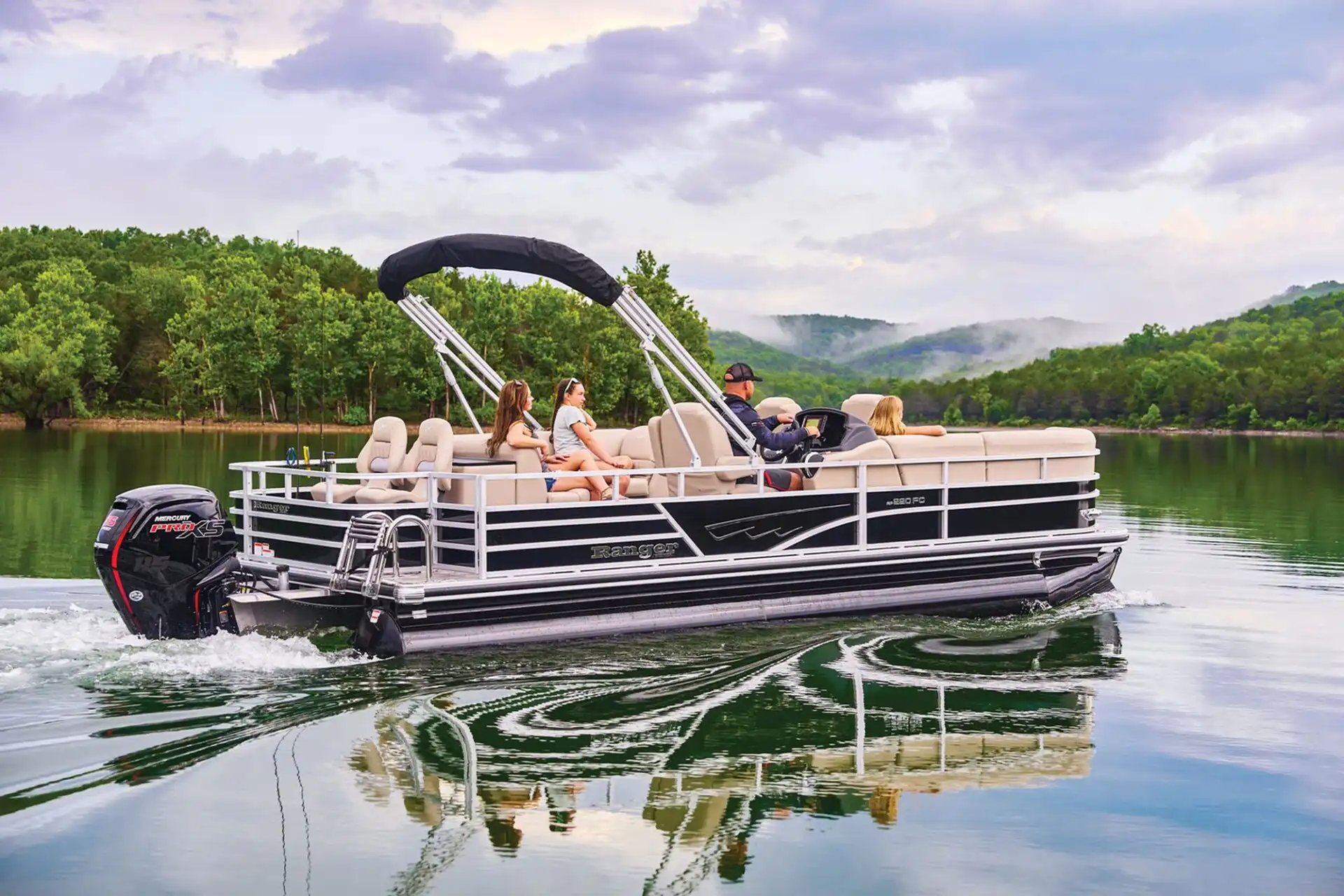
A pontoon is a flat-bottomed vessel that relies on cylindrical tubes, or pontoons, to float on the water. Typically, a pontoon has two large pontoons (also called logs) on either side of the deck, providing stability and buoyancy. These boats are known for their spacious decks, which can accommodate many passengers and offer ample room for activities like fishing, sunbathing, and socializing.
What is a Tritoon?
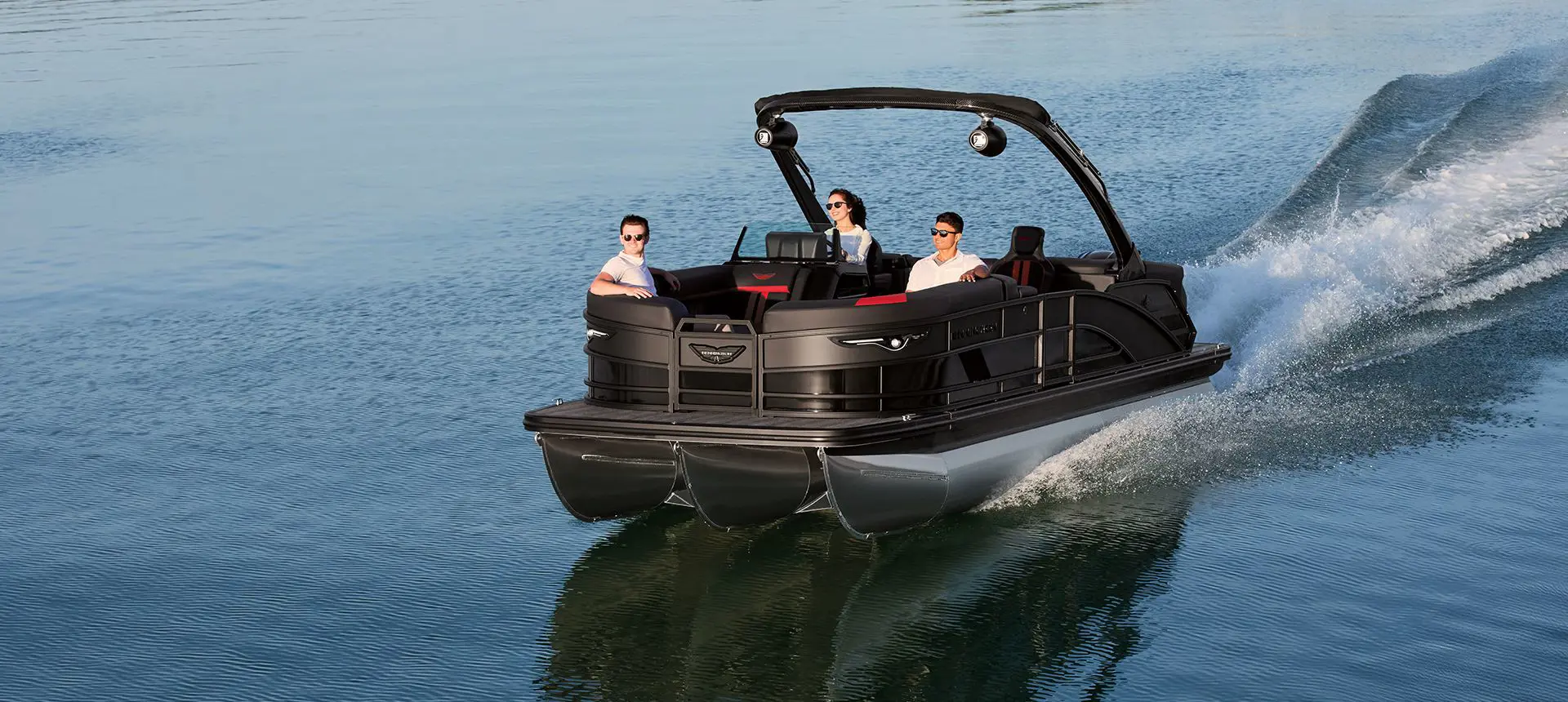
A tritoon, on the other hand, is essentially a pontoon boat with an additional center pontoon, making it a three-tube boat. This third pontoon enhances the boat’s stability, speed, and overall performance, particularly in rougher waters. Tritoons are often preferred for their improved handling and ability to support larger engines, which allows for higher speeds and better performance under various conditions.
Comparing the Two
1. Stability and Handling
- Pontoon: Pontoons are highly stable in calm waters, making them ideal for leisurely cruises on lakes and slow-moving rivers. Their wide deck provides a steady platform, which is perfect for families and groups looking to relax and enjoy the water.
- Tritoon: With the addition of a third pontoon, tritoons offer even greater stability and better handling, especially in choppy waters. This makes them more versatile and capable of handling a variety of water conditions, including coastal areas with moderate waves.
2. Speed and Performance
- Pontoon: Pontoons are generally slower due to their two-pontoon design and are typically equipped with smaller engines. They are perfect for slow, leisurely cruises and are not designed for high-speed performance.
- Tritoon: The third pontoon allows for larger engines and higher horsepower, making tritoons faster and more powerful. Larger tritoons are even capable of have multiple engines. This added speed and performance are ideal for watersports enthusiasts and those who enjoy a bit more thrill on the water.
3. Capacity and Comfort
- Pontoon: Pontoons offer plenty of space for passengers, making them excellent for social gatherings and family outings. They often feature comfortable seating, tables, and even amenities like grills and changing rooms.
- Tritoon: While tritoons offer similar spaciousness, their enhanced stability and performance allow for more luxurious and comfortable features. Higher-end models may include plush seating, advanced sound systems, and more sophisticated onboard amenities.
4. Versatility:
- Pontoon: Pontoons are versatile for various activities like fishing, cruising, and even hosting small parties. However, their performance is best suited for calm waters.
- Tritoon: Tritoons are more versatile when it comes to different water conditions. They can handle rougher waters and higher speeds, making them suitable for both inland and some coastal boating activities.
5. Cost:
- Pontoon: Generally, pontoons are less expensive than tritoons, both in terms of initial purchase price and maintenance. They are a great option for budget-conscious buyers looking for a reliable and comfortable boat.
- Tritoon: Tritoons are more costly due to their additional pontoon and enhanced performance features. However, the investment may be worthwhile for those seeking better stability, speed, and overall boating experience.
6. Fuel Efficiency:
- Pontoon: Pontoons with smaller engines tend to be more fuel-efficient, making them economical for long days on the water.
- Tritoon: Tritoons, with their larger engines, generally consume more fuel. However, advancements in marine engine technology are improving fuel efficiency even for higher-powered tritoons.
Pros and Cons of Pontoons vs. Tritoons
Pontoon Boats
The appeal of a pontoon has always been its simplicity. With two large logs supporting a wide, open deck, these boats deliver comfort and stability in calm water. Families appreciate the generous seating, open layouts, and the fact that everyone—from kids to grandparents—feels secure moving around on board. They’re also one of the most affordable ways to get out on the water, both in terms of initial purchase price and long-term upkeep. Fuel costs stay manageable thanks to smaller engines, and maintenance is straightforward.
Where pontoons come up short is performance. The two-tube setup limits handling, especially when conditions get sporty. Speed is another area where pontoons don’t compete—while perfect for a sunset cruise or a slow troll while fishing, they’re not built for high-horsepower thrills or watersports that demand pulling power. For buyers who stick to lakes and rivers and prioritize relaxation, these tradeoffs are often easy to live with.
Tritoon Boats
Adding a third tube changes the entire experience. Tritoons carve through chop more confidently, corner with more precision, and can be equipped with engines large enough to rival many center consoles. That means towing tubes, wakeboarders, or skiers is well within reach, and cruising at higher speeds. Luxury features are also more common on tritoons, with many manufacturers outfitting them with upscale seating, premium sound systems, and deck layouts designed for entertaining
Of course, all those advantages come at a cost. Tritoons typically carry a higher sticker price, and with bigger engines comes higher fuel consumption and more involved maintenance. For buyers on a budget, those factors can be a hurdle. But for boaters who want a platform that combines the family-friendly comfort of a pontoon with the performance and versatility of a traditional powerboat, the tritoon’s advantages often outweigh the added expense.
FAQs: Pontoon vs. Tritoon
Tritoons almost always have a higher top end speed. With the extra center tube providing stability, they can be rigged with much larger engines, sometimes even twin outboards. It’s not uncommon to see performance-oriented tritoons topping 50 mph or more, while most pontoons are happiest cruising at leisurely speeds in the 15–25 mph range.
Pontoons are generally better when it comes to fuel economy. They usually have smaller engines which consumes less gas, making them a good choice for long, relaxed days on the water. Tritoons, with bigger motors and higher cruising speeds, tend to burn more fuel, though modern four-stroke engines have made efficiency much better than in years past.
On paper, both are great boats for large groups of people, but tritoons have the advantage in capacity. The third tube provides extra buoyancy, which allows manufacturers to design layouts that can safely handle more passengers and gear without sacrificing performance. For large families or groups of friends, that extra load capacity can make a difference.
Tritoons again have the upper hand. The additional tube helps the boat cut through chop and track straighter, giving a more confident ride in windy or wavy conditions. Pontoons do fine in calm lakes and rivers but can feel underpowered or uncomfortable if the water gets too sporty.
Yes, many anglers enjoy the wide, stable decks pontoons provide. They offer plenty of room for casting, moving around, and setting up gear. However, pontoons are best for calm-water fishing; those who want to cover long distances quickly or go out when the weather isn’t so nice will find a tritoon or traditional center console better suited to the task.
Pontoons are typically lighter, making them easier for most vehicles to trailer and launch. Tritoons are heavier and may require a larger tow vehicle, but they remain manageable with the right setup.
Initial price aside, ownership costs can add up. Pontoons are easier on the budget with lower fuel bills, less expensive engines, and simpler maintenance. Tritoons cost more up front and at the fuel dock, but they can hold their resale value better, which helps offset the higher investment.
Which One Should You Choose?
Deciding between a pontoon and a tritoon really comes down to how you see yourself using the boat. If your idea of a perfect day on the water is a relaxed cruise with family and friends, maybe a little fishing, and plenty of space to stretch out, a pontoon checks all the right boxes. It’s budget-friendly, fuel-efficient, and built for calm lakes and rivers where comfort matters more than speed.
On the other hand, if you want more capability, a tritoon is hard to beat. The extra tube adds confidence in rougher water, opens the door to watersports, and allows for bigger engines that can push the boat into performance territory. Yes, the price tag and fuel bill are higher, but so is the versatility—you’re getting a platform that blends pontoon-style comfort with much of the performance of a traditional powerboat.
Follow us on Social Media!
Search
Recent Posts
Bay boats have earned their reputation…
Bay boats have become some of…







